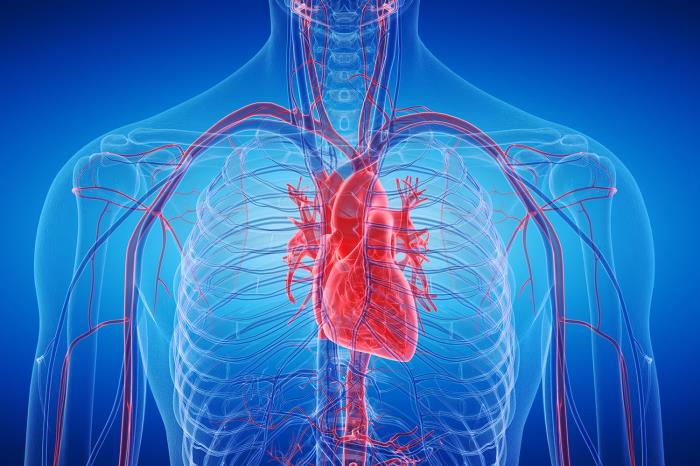Heart transplantation is often a critical option for patients with end-stage heart disease. For individuals with diabetes, however, the procedure presents unique challenges and risks. Diabetes affects multiple organs and can complicate both pre- and post-transplant care. Understanding these complexities is essential for ensuring successful outcomes and managing the heightened risks associated with diabetes in heart transplant patients.
Medical disclaimer: This content is for general awareness and does not replace a doctor’s consultation. For diagnosis or treatment decisions, consult a qualified specialist.
Understanding the Impact of Diabetes on Heart Health
Diabetes is a significant risk factor for cardiovascular diseases, including coronary artery disease, which often leads to the need for a heart transplant. Chronically high blood sugar levels can damage blood vessels, increase plaque buildup, and reduce the heart's efficiency. Additionally, diabetes may contribute to other conditions, such as kidney dysfunction and peripheral artery disease, which can further complicate heart health.
Why Diabetes Increases Risks in Heart Transplant Patients
Diabetic patients face elevated risks during and after heart transplantation. Poor blood sugar control can impair wound healing, increase the risk of infections, and exacerbate cardiovascular complications. Additionally, diabetes-related organ damage, such as nephropathy or retinopathy, may affect overall transplant eligibility and long-term recovery prospects.

Pre-Transplant Assessment: Evaluating Diabetic Patients for Eligibility
A thorough pre-transplant assessment is crucial for diabetic patients. This includes evaluating the severity of their diabetes, organ function, and ability to manage blood sugar levels effectively. Tests such as hemoglobin A1c levels, kidney function assessments, and cardiovascular evaluations help determine whether a patient is a suitable candidate for transplantation.
Managing Blood Sugar Levels Before Heart Transplant Surgery
Tight blood sugar control is essential before undergoing heart transplant surgery. Poorly managed diabetes increases surgical risks, including infection and delayed healing. Preoperative strategies include optimizing blood sugar levels through medication adjustments, dietary changes, and, in some cases, the use of insulin pumps. Collaboration between endocrinologists and cardiologists ensures a comprehensive care plan.
How Diabetes Affects the Healing Process Post-Transplant
After a heart transplant, diabetes can complicate the healing process. Elevated blood sugar levels interfere with tissue repair and increase susceptibility to infections. Post-surgical wound care is especially critical for diabetic patients, as even minor infections can escalate quickly. Monitoring and controlling blood sugar levels is essential to support the body’s recovery.
The Role of Insulin Therapy in Heart Transplant Recovery
Insulin therapy plays a pivotal role in managing diabetes after heart transplantation. Immunosuppressive medications required post-transplant can impact blood sugar levels, necessitating careful adjustments to insulin regimens. Regular blood sugar monitoring and timely interventions help maintain optimal glucose control, reducing the risk of complications and supporting overall transplant success.
Complications Linked to Diabetes in Transplant Recipients
Diabetes increases the complexity of heart transplantation by heightening the risk of complications like wound infections, delayed healing, and kidney damage. Diabetic patients are also more prone to cardiovascular issues, which can impact both pre- and post-surgery outcomes.
Addressing Cardiovascular Risks Unique to Diabetic Patients
Diabetic patients undergoing heart transplants face unique cardiovascular risks, including accelerated atherosclerosis and coronary artery disease progression. Tailored strategies to manage these risks are essential for successful outcomes.
The Importance of Lifestyle Modifications in Diabetic Heart Transplant Patients
Post-transplant lifestyle changes, such as adopting a heart-healthy diet, engaging in regular physical activity, and maintaining a stable weight, are crucial for diabetic patients. These modifications help manage blood sugar levels and reduce the risk of complications.
Long-Term Immunosuppressive Therapy and Its Impact on Diabetes
Immunosuppressive medications, necessary to prevent organ rejection, can exacerbate diabetes or lead to new-onset diabetes after transplantation (NODAT). Careful monitoring and adjustment of these therapies are vital for diabetic patients.
Nutritional Management for Diabetic Patients After a Heart Transplant
A specialized diet plan focusing on low glycemic index foods, adequate protein, and controlled carbohydrate intake is essential for diabetic transplant recipients. Proper nutrition supports recovery and helps manage blood glucose levels effectively.

Monitoring for Organ Rejection in Diabetic Heart Transplant Recipients
Diabetic patients may experience subtler symptoms of organ rejection, making regular monitoring critical. Diagnostic tests, such as endomyocardial biopsies and echocardiograms, are used to detect rejection early and guide treatment.
Managing Infections in Immunocompromised Diabetic Patients
Diabetic patients are at a higher risk of infections due to compromised immune function and immunosuppressive therapy. Preventive measures, such as vaccinations and prompt treatment of infections, are essential for their care.
The Role of Multidisciplinary Teams in Overcoming Transplant Challenges
Managing diabetes alongside heart transplantation requires collaboration among cardiologists, endocrinologists, transplant surgeons, dietitians, and psychologists. Multidisciplinary teams ensure comprehensive care tailored to each patient's needs.
Advances in Surgical Techniques for Diabetic Heart Transplant Patients
Innovative surgical approaches, such as minimally invasive techniques and improved organ preservation methods, have enhanced outcomes for diabetic heart transplant patients, reducing recovery times and complications.
Psychological Support for Diabetic Patients Undergoing Heart Transplants
Heart transplant surgery can be emotionally challenging for diabetic patients. Access to psychological counseling helps address anxiety, depression, and the stress of managing a chronic condition alongside recovery.
The Importance of Regular Follow-Up Care in Managing Diabetes Post-Transplant
Consistent follow-up care is critical for diabetic transplant recipients to monitor organ function, adjust medications, and manage blood sugar levels. Regular check-ups with a multidisciplinary team help ensure long-term success.
Success Stories: Overcoming Challenges in Heart Transplantation for Diabetics
Numerous diabetic patients have successfully undergone heart transplants, achieving improved quality of life through a combination of medical care, lifestyle adjustments, and robust support systems. These success stories inspire hope for others.
Exploring the Ethical Aspects of Heart Transplantation
Learn about the ethical aspects of heart transplantation. This post delves into the complex ethical issues involved in heart transplant surgeries, such as organ allocation, patient eligibility, and the decision-making processes surrounding the procedure.
The Role of Heart Transplantation in Treating Severe Cardiomyopathy
Discover the role of heart transplantation in treating severe cardiomyopathy. This article explains how heart transplant surgery is used as a life-saving option for patients with advanced cardiomyopathy, a condition where the heart becomes too weak to pump blood effectively.
Conclusion: Improving Outcomes for Diabetic Patients Undergoing Heart Transplantation
Heart transplantation for diabetic patients presents unique challenges, but with advancements in medical care, a multidisciplinary approach, and patient dedication to lifestyle changes, positive outcomes are increasingly achievable.
Best Heart Transplant in India
The Best Heart Transplant in India offers a life-saving solution for patients with end-stage heart failure, using advanced surgical techniques and comprehensive post-transplant care.
Best Heart Transplant Hospitals in India
The Best Heart Transplant Hospitals in India provide state-of-the-art facilities, skilled transplant specialists, and multidisciplinary teams for seamless patient care and recovery.
Heart Transplant Cost in India
The Heart Transplant Cost in India is structured to offer affordability while ensuring access to world-class transplant services and comprehensive care packages.
Best Heart Transplant Surgeons in India
The Best Heart Transplant Surgeons in India have extensive experience in performing complex transplants, ensuring precise techniques and personalized patient care for optimal outcomes.
FAQs
Why is heart transplantation more challenging in diabetic patients?
Diabetes increases the risk of complications such as infections, poor wound healing, and cardiovascular issues, requiring meticulous pre- and post-operative management.
How does diabetes affect eligibility for heart transplant surgery?
Diabetes can impact eligibility if it has caused significant organ damage or if blood sugar levels are not well-controlled, but many diabetic patients still qualify with proper management.
What are the specific complications faced by diabetic transplant recipients?
Diabetic recipients face risks such as infections, kidney dysfunction, delayed healing, and the potential worsening of diabetes due to immunosuppressive drugs.
How is blood sugar managed before and after a heart transplant?
Blood sugar management involves close monitoring, tailored insulin therapy, and adherence to a balanced diet both before and after surgery.
Can diabetic patients live normal lives after a heart transplant?
Yes, many diabetic patients lead normal, active lives post-transplant with proper medical care, lifestyle changes, and regular follow-up appointments.
Cardiac rehabilitation is a critical component of recovery after a heart transplant. It helps patients regain strength, improve mobility, and speed up recovery. These programs typically include medically supervised exercise, nutrition counseling, health education, and psychological support. Engaging in cardiac rehabilitation can significantly enhance the quality of life and long-term health outcomes for heart transplant recipients. The Role of Cardiac Rehabilitation After a Heart Transplant
Post-transplant rehabilitation programs are vital for improving the recovery and long-term health of transplant recipients. These programs help patients regain strength, improve mobility, and enhance overall well-being. They typically include medically supervised exercise, nutrition counseling, health education, and psychological support. Engaging in these programs can significantly reduce the risk of complications, promote a healthier lifestyle, and improve the quality of life for transplant patients. The Importance of Post-Transplant Rehabilitation Programs
Heart transplantation raises several ethical questions and considerations. These include issues of informed consent, organ donation and allocation, fairness and justice in recipient selection, and the ethical implications of reusing organs. Understanding these ethical aspects is crucial for ensuring that heart transplantation is conducted in a manner that respects the dignity and rights of all individuals involved. Exploring the Ethical Aspects of Heart Transplantation